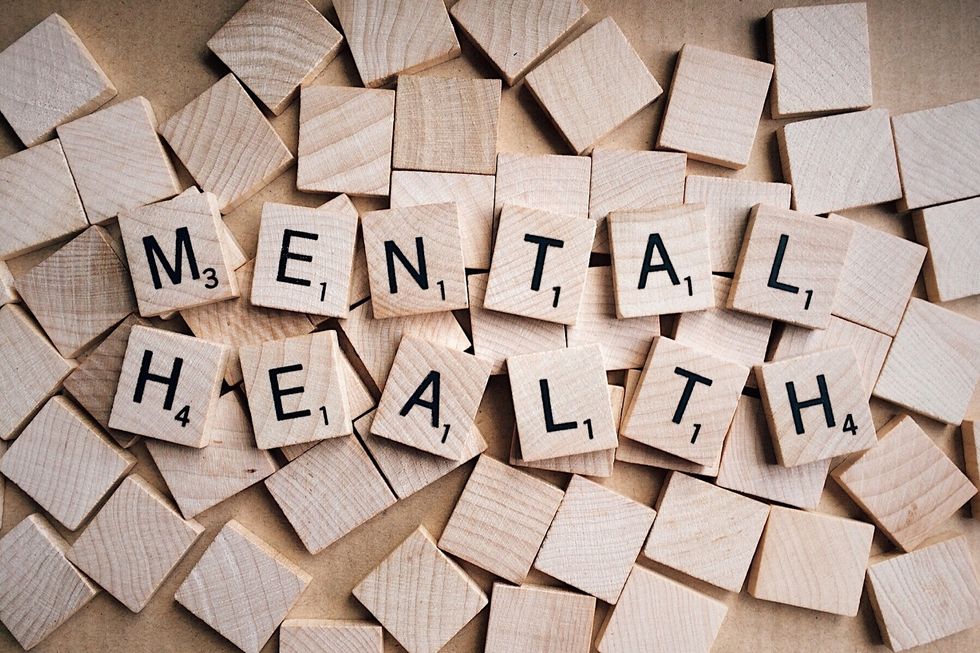I know many people who currently struggle or have previously dealt with mental health issues. Unfortunately, mental health problems are extremely common. May is the United States' National Mental Health Awareness Month. While social media spews information about mental health resources and statistics on mental illnesses, once May is over mental health will probably get put on the back burner like so many other trends and new stories of the past. But those who struggle with mental health issues cannot just ignore their problems at the end of the month. Often, these issues are at the forefront of their mind daily.
First, I must make a disclaimer. I am in no way an expert in the field of psychology. All I will say comes from my personal experience or what I have witnessed second hand. I, myself, have struggled with mental health issues in the past and still deal with some now. I can tell you first hand how difficult dealing with mental health problems can be. But I can also tell you that, as cheesy as it sounds, there is hope.
Therapy is just one of the many ways to deal with mental illnesses. One of my biggest annoyances is the stigma surrounding psychotherapy. In my opinion, therapy should be available to everyone and everyone, at some point in their life, should experience it. Despite its expense, therapy is a great way to get some of the worries and concerns off of your chest and out in the open. It plays to the social nature of human beings by allowing you to tell someone else about the things on your mind without having to share it with those close to you in your life. It takes out all the biases, judgment, and fear of people finding out your biggest secrets because the therapist is trained to listen and advise in complete confidence.
Sadly, the stigmas surrounding mental health do not stop at therapy. I have known people personally who are afraid to tell people that they deal with depression, anxiety, or disordered eating for fear that people will treat them differently. People with mental illnesses are not broken. In fact, they are some of the strongest people out there because, despite their mental health issues, they carry on.
I am hopeful that our society is headed in the right direction in terms of how we handle mental illnesses. More and more mainstream media are openly discussing the topic and an increasing number of people are candidly sharing their struggles in hopes of helping someone in need. I am confident that being aware of mental health will expand out of the month of May into our daily discourse.
But since we are just about halfway through May, I wanted to say that it is okay, in fact, it is necessary to prioritize your mental health. Look out for your friends, check in and make sure they know you are there should they ever need you. But, also, take care of yourself.
We are human. Our complex brains are amazing for everything that they allow us to do but sometimes the mind, with all of its emotion and feeling, can be the root of serious mental health problems. It is important to acknowledge how common this is and that no one should ever be alone in their battle. I have written it before in some of my previous articles but no grade, career opportunity, or relationship is worth neglecting your mental health. This month and every month, give yourself grace, treat others with kindness, and seek help should you ever need or desire it.
If you or someone you know is struggling with mental health issues, here are some of the national resources available:
Emergency Medical Services—911
If the situation is potentially life-threatening, get immediate emergency assistance by calling 911, available 24 hours a day.
National Suicide Prevention Lifeline, 1-800-273-TALK (8255) or Live Online Chat
If you or someone you know is suicidal or in emotional distress, contact the National Suicide Prevention Lifeline. Trained crisis workers are available to talk 24 hours a day, 7 days a week. Your confidential and toll-free call goes to the nearest crisis center in the Lifeline national network. These centers provide crisis counseling and mental health referrals.
SAMHSA Treatment Referral Helpline, 1-877-SAMHSA7 (1-877-726-4727)
Get general information on mental health and locate treatment services in your area. Speak to a live person, Monday through Friday from 8 a.m. to 8 p.m. EST.






 The minimum wage is not a living wage.
StableDiffusion
The minimum wage is not a living wage.
StableDiffusion
 influential nations
StableDiffusion
influential nations
StableDiffusion












